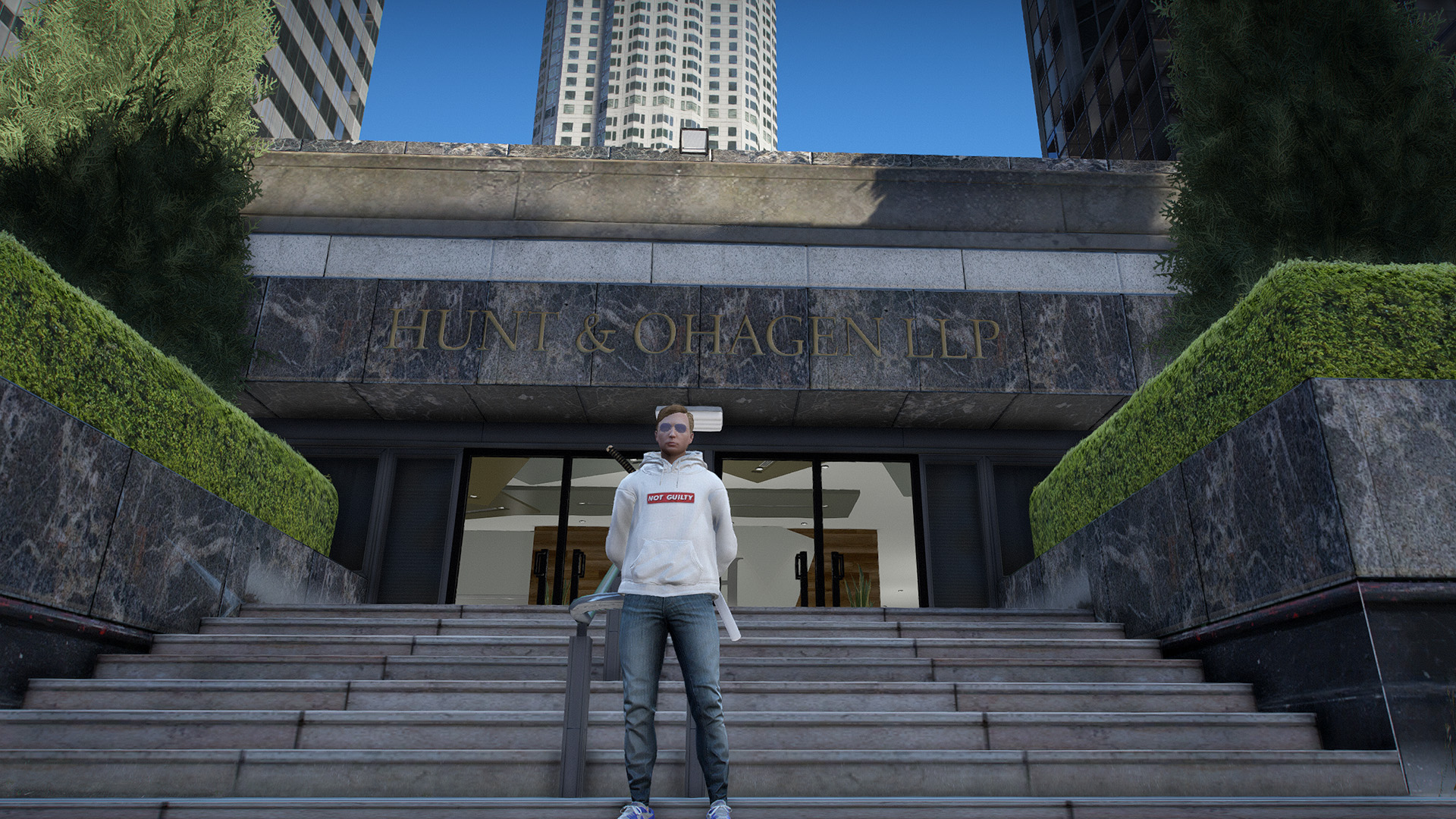This is a Commentary Piece
This piece was written by a member of the public or a high-profile individual as a submission to the editors. To write your own commentary piece, please contact a Shout News employee.
Written by Matt Murdank
Partner at Hunt & OHagen
The Department of Justice and the Los Santos Police Department would like you to know that they have investigated themselves and determined that they have done nothing wrong. My response to them is simple: Show, don’t tell.
They would like you to know that they have policies and procedures in place to address the wrongdoing of which they are alleged. The Department of Justice would like you to know that they “are strongly committed to upholding the principles of fairness and justice in all proceedings.” The Los Santos Police Department would like you to know that “the current state of PD is wonderful, thank you very much.”
They would like you to know that they will not be publishing any evidence to support these claims.
How many of you reading this believe that an officer has violated your rights recently? Have they engaged in excessive use of force? Hit you with their vehicle and driven off without identifying themselves? Killed or caused the death of your friends and loved ones?
If an officer mistreated you, you were probably grief-stricken. It probably took some time to get your senses about you. Maybe you reached out to a lawyer because you wanted some help getting things made right. Often, that lawyer might tell you that it’s difficult to hold individual officers accountable, that the police accountability measures in place don’t often result in actions taken against officers, and that lawsuits are almost always a long and painful road with little to show at the end.
Maybe you chose to go down these paths anyway. You went with your lawyer to Vinewood Police Department, you asked for a supervisor, you stood around waiting for one to show up, and you talked to them about your complaint. Maybe that supervisor told you that most complaints are handled as “officer complaints” rather than true Internal Affairs reports. Maybe they told you that whether an issue becomes an IA report is ultimately up to the discretion of the officer taking the complaint. Maybe they told you that you’d hear from them via an email on the government website once the issue had been addressed. Maybe that email even got delivered to you. Maybe you talked to your lawyer and filed a case against the officer who wronged you. Maybe you went through weeks of discovery, depositions, and an eventual hearing, just to have your day in court. Maybe you even got a verdict in your favor.
Or, more likely, any one of these things became enough of an emotional, financial, and institutional burden that you became overwhelmed and didn’t want to pursue it further.
In the view of the government, this system works. In the view of the government, these results are desirable. In the view of the government, you should be grateful that you even have these exhausting, draining, tedious options.
At the last government town hall, Chief of the Los Santos Police Department Julie Lee stated that LSPD would not be publishing any press releases except in response to inquiries by the press. Many recent Shout News articles — and I encourage the editors to add a footnote with specifics here — note that the LSPD declined to comment or “a representative … was not available.” Even when directly asked for comment, the PD has no interest in serving the public.
On March 6th, Shout News published a Hunt & OHagen press release announcing that we had referred matters to the United States Marshals Service for the investigation of every law enforcement department (with the exception of the Rangers, much love to Charlie Morgan and company) and the Department of Justice on suspicion of Abuse of Office. The motivating evidence behind this referral was that the evidence as submitted to the docket, as well as reliable sources, contradicted the existence of probable cause in support of Attempted First Degree Murder charges and that those charges were nevertheless pursued by prosecutors and police.
Upon information and belief, whether those charges were appropriate was discussed by members of the Department of Justice in official and authorized state communications. Nevertheless, the Department of Justice asserts that “there are no grounds for Malicious Prosecution and that there was no evidence to support an Abuse of Process claim.” The Department also cites “case law from Chief Justice Drake Paxton found in CV-028-2021” — even if the reader assumes this to be a scrivener’s error for 2021-CV-028, that case was overseen by William Buckley and involved a claim of defamation, not abuse of office. Abuse of Office is a charge that has never been ruled on by Drake Paxton.
Since our press release, the Police Department has not made any public comment about the Marshals’ investigation. It has, however, provided information to Representative Joanna Poole about its internal affairs process, noting that the Internal Affairs team has only investigated a mere six reports since the beginning of 2024 — almost three months now. This number is a mere fraction of the complaints of police abuse that have come across my desk personally. If the Police Department were serious about setting good examples and enforcing internal policies against the bad apples that would otherwise spoil the bunch, you might imagine that number would be much higher.
Nevertheless, I wouldn’t be a very good lawyer if I didn’t come to the table armed with a remedy.
My response, again, is simple: Show, don’t tell.
I challenge the Department of Justice to publicly release all email correspondence relating to the handling of 2024-CM-057 and 2024-CM-070, both within the department and between individual prosecutors (as may or may not exist). I challenge the Los Santos Police Department, or any branch of Law Enforcement that may find it just and proper, to publicly disclose information about the number of misconduct complaints and IA reports received, investigated, and actioned on a monthly basis, as well as the number of cases found to have merit and those dismissed or otherwise disregarded. I further suggest that each entity be as overly broad and creative as possible in responding to these challenges.
If you really have the public interest at the forefront of your hearts, minds, and actions, all you have to do is prove it. You have lost the public trust. If you want to regain it, this is one place to start. The data and the evidence will at least start a conversation.
Show, don’t tell.






Leave a Reply